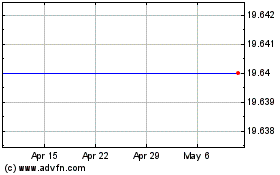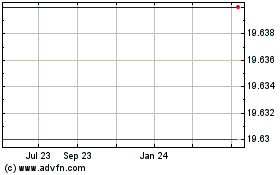By Shalini Ramachandran and Douglas MacMillan
AT&T Inc. is unwinding a 15-year partnership with Yahoo Inc.
that has spanned the evolution of the Internet, from competing
against AOL dial-up service to jockeying against cable companies to
selling high-speed broadband.
AT&T said Wednesday that it has awarded the cogiantract to
host its Web and mobile portals to Synacor Inc., a company
little-known outside of telecom circles. The deal effectively moves
a major chunk of AT&T's business away from Yahoo.
"We have agreed to have Synacor manage our next-generation
att.net portal, AT&T-branded applications, and search,"
AT&T said in a statement. Yahoo will continue to host email for
AT&T customers, though a person familiar with the deal said
that is a fraction of its prior business with the telecom
giant.
A Yahoo spokeswoman said AT&T is still a "valued partner"
but declined to comment further.
The revenue-sharing alliance between a telecom giant and an
Internet pioneer had lost much of its cachet over the years amid a
shifting Web landscape. But the partnership's demise is ill-timed
for Yahoo, which is in talks to sell itself to bidders including
AT&T's fiercest rival, Verizon Communications Inc.
Sameet Sinha, an analyst at B. Riley & Co., estimates the
AT&T partnership generated about $100 million in annual revenue
for Yahoo.
The deal had given AT&T broadband customers access to
Yahoo's search engine and other media services on the default
AT&T website. AT&T and Yahoo had been splitting the search
and display ad revenue from the site.
For Yahoo, the partnership brought in hundreds of millions of
dollars in revenue over its life, a significant portion of which
went straight to the bottom line, Mr. Sinha estimates. That is
because the arrangement required minimal resources from Yahoo,
leading to strong profit margins, he said.
Yahoo doesn't break out its revenue from AT&T or broadband
partners, but they contributed to the company's shrinking search
and display ad revenue. Search revenue, excluding commissions paid
to Web partners, declined 21% in the first quarter to $347.7
million. Display revenue, excluding commissions, fell 1% to $380
million.
AT&T is backing away from Yahoo at a critical time for the
struggling Internet company. A handful of potential buyers,
including Verizon and private-equity firm TPG, last month submitted
bids for the core Web business, people familiar with the matter
have said.
The sale process is casting uncertainty around Yahoo's future,
and that could deter advertisers and other business partners, said
Youssef Squali, an analyst at Cantor Fitzgerald. The loss of the
AT&T deal is "another indication that Yahoo is losing appeal
with its partners," he said.
Any loss of revenue could, in turn, diminish interest from
potential suitors or lower the price they are willing to pay. Most
of Yahoo's preliminary bids came in the range of between $4 billion
and $8 billion, a person familiar with the process said last
month.
Another long-standing Yahoo deal is set to expire next year.
Japanese tech giant SoftBank Group Corp. pays about $200 million
annually in licensing fees for its Yahoo Japan unit, of which Yahoo
is still a stakeholder. About half of those fees expire in August
2017, though a separate licensing agreement involving the Yahoo
brand has no expiration date.
Advertisers have continued to shift budgets away from Yahoo to
online-ad rivals Alphabet Inc. and Facebook Inc. This year, Yahoo
will claim 1.5% of the global market for online ads, down from a
2.4% share last year, estimates eMarketer Inc.
The original purpose for the AT&T-Yahoo deal, struck in
2001, was to help AT&T better compete for high-speed Internet
customers against America Online Inc., which had just merged with
Time Warner Inc. Over its course, the relationship has taken many
twists and turns, including with AT&T and Yahoo once
contemplating jointly buying Walt Disney Co. and later choosing to
simply focus on providing search and media services for AT&T's
customer Web and mobile portals.
Synacor Chief Executive Himesh Bhise said the deal will bring in
an additional $100 million a year for the company once it has fully
deployed its services for AT&T over the next 12 months. It will
help the phone giant customize its own Web and mobile portals. On
Wednesday afternoon, Att.net still had a co-branded logo saying
"powered by Yahoo!"
Many other cable and broadband operators have shifted to
choosing white-label vendors or developing the expertise in-house
for their customer Web and mobile sites, Mr. Bhise said. That is
because service providers no longer want a "broad-based consumer
portal" but want to "craft their own digital presence."
Synacor will split the search and advertising revenue with
AT&T. Unique visitors to www.att.net has stayed fairly constant
over the past three years, according to comScore Inc., though it is
down from a year ago by 8.7% to 8.4 million in March.
The three-year deal is a coup for Synacor, which has struggled
over the past few years under pressure from investors. "It puts the
company on a trajectory to be three times its size in three years,"
Mr. Bhise said.
Write to Shalini Ramachandran at shalini.ramachandran@wsj.com
and Douglas MacMillan at douglas.macmillan@wsj.com
(END) Dow Jones Newswires
May 04, 2016 17:48 ET (21:48 GMT)
Copyright (c) 2016 Dow Jones & Company, Inc.
Altaba (NASDAQ:AABA)
Historical Stock Chart
From Mar 2024 to Apr 2024

Altaba (NASDAQ:AABA)
Historical Stock Chart
From Apr 2023 to Apr 2024
